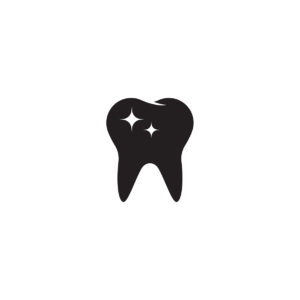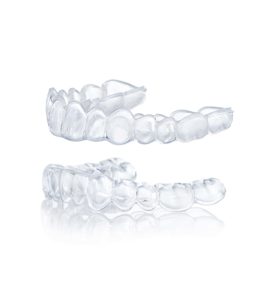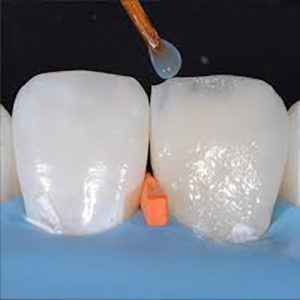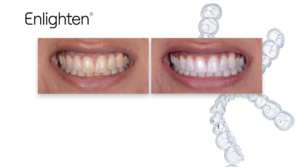

FAQ
- 1. Teeth Whitening
- 2. Mini Smile Makeover
- 1. Does the use of whitening toothpaste really prolong the whitening of my teeth?Author: Enlighten Smiles 29.11.18
This depends on which toothpaste you use. Superior quality ones will have ingredients that not only take stain away but inhibit the build-up on new stains.
Was this answer helpful ? Yes / NoViewed 470 Times - 2. Does teeth whitening always work?Author: Enlighten Smiles 29.11.18
It does most of the time, but not always. It depends on each case, that is why we recommend you visit your dentist before making any decision.
Was this answer helpful ? Yes / NoViewed 504 Times - 3. Do whitening toothpastes whiten teeth?Author: Enlighten Smiles 29.11.18
Depends what you mean by ‘whiten’. Whitening toothpastes cannot whiten the enamel as such but they can take away extrinsic stains and therefore the teeth can appear whiter after prolonged use. Good quality whitening toothpastes can contain multiple ingredients to take away stains effectively without causing damage by aggressive abrasion.
Was this answer helpful ? Yes / NoViewed 382 Times - 4. Will my teeth look natural?Author: Enlighten Smiles 29.11.18
Absolutely, because you are not replacing natural tooth structure with something artificial. Different whitening gels produce different qualities of brilliance. Some look more natural than others even at whiter shades.
Was this answer helpful ? Yes / NoViewed 462 Times - 5. Does everybody’s teeth whiten the same?Author: Enlighten Smiles 29.11.18
No, whitening saturation points are different for everyone because some teeth are more susceptible to the treatment. Using quality products like Enlighten most teeth can achieve B1 shade.
Was this answer helpful ? Yes / NoViewed 420 Times - 6. Why do teeth get discoloured?Author: Enlighten Smiles 29.11.18
Your adult teeth are made deep inside the gum, while you are a very young baby, and the colour is established from that moment. Generally, teeth are very white when they first come out but once they are exposed to the elements (eating, drinking, bacteria) the colour will start to change. Tea, food, coffee, smoking and red wine will accelerate the yellowing of your teeth as you get older. However, if you have regular scale and polishes with your dentist, do not smoke and look after your teeth the discolouration will be minimal.
Another thing that can happen is the enamel (the outer layer) starts to wear. As that white layer is eroded the deeper layer, the dentin, which is more yellow, starts to show through. There are also medical reasons for teeth to get discoloured e.g. tetracycline staining can be severe and can happen when this antibiotic it taken at an early age.
Was this answer helpful ? Yes / NoViewed 403 Times - 7. Should I do a hygiene session before the teeth whitening?Author: Enlighten Smiles 29.11.18
Definitely. To get the best possible effect you should always have a thorough scale and polish form your dental professional.
Was this answer helpful ? Yes / NoViewed 545 Times - 8. Are there any contraindications?Author: Enlighten Smiles 29.11.18
We advise patients who are pregnant or nursing mums not to do any kind of tooth whitening. There is no evidence that any damage can be done to the foetus or the baby, but no risks should be taken. Other than that, there are very few contraindications, but your dentist will check your medical history and will let you know.
Was this answer helpful ? Yes / NoViewed 446 Times - 9. Do I need to keep a white diet?Author: Enlighten Smiles 29.11.18
Check with individual brands. With Enlighten system there are no diet restrictions.
Was this answer helpful ? Yes / NoViewed 719 Times - 10. Is it effective for everybody?Author: Enlighten Smiles 29.11.18
It is effective for most patients but not for everyone. If you have lots of crowns, fillings and veneers then the effect of the treatment will be less as only the natural teeth will whiten. If you enamel is very thin or dark the treatment will take longer and, in some case, will not work as well. It’s always best to consult with your dentist.
Was this answer helpful ? Yes / NoViewed 440 Times - 11. Is teeth whitening safe?Author: Enlighten Smiles 29.11.18
It is absolutely safe as long as it has been carried out by a qualified dental professional, dentist, therapist or hygienist and the products they use are a professional grade. There are over the counter products available on the market that are not regulated and not sold through a dental practice. Some of them are potentially dangerous and are not recommended.
Was this answer helpful ? Yes / NoViewed 379 Times - 12. How long does it last?Author: Enlighten Smiles 29.11.18
It depends on many factors and the brand. We always advise to keep your trays and once you have done the full treatment you can do ‘top up’ applications. When it comes to Enlighten the normal regime is to top up one night every two months during the first year, one night every 4 months during the second year and one night every 6 months during the third year. This way your teeth will not fade.
Was this answer helpful ? Yes / NoViewed 524 Times - 13. Will my crowns, veneers or fillings change colour with the treatment?Author: Enlighten Smiles 29.11.18
No, the peroxide will not change the colour of porcelain or any artificial material in the teeth. If you have any extrinsic stains (stains on top of the veneer, etc.) it may take these away.
Was this answer helpful ? Yes / NoViewed 292 Times - 14. Is charcoal teeth whitening effective?Author: Enlighten Smiles 29.11.18
No. Charcoal cannot change the colour of the enamel itself, it might abrade external stains, like any other toothpaste. The main effect is optical, as the black is washed off the teeth look whiter as an optical illusion.
Was this answer helpful ? Yes / NoViewed 346 Times - 15. What are the main differences between professional teeth whitening and over the counter treatment?Author: Enlighten Smiles 29.11.18
Professional treatments are carried out by registered dentists professionals and only use products that are regulated, have strict manufacturing rules and quality control. Dentists have to be qualified and have properly trained ensuring teeth whitening treatments are very high standard and no safety issues.
Over the counter ones are exactly the opposite. They are not regulated, not prescribed by dentist and have no quality control. There has been several occurrences where people have used over the counter products and the enamel has been stripped off because it is very acidic. This has caused a permanent damage to the teeth. Over the counter products are much cheaper and sometimes the first option for the public for that reason. However, trying them is a health risk, because if they damage the teeth there are no way to reverse that damage.
Was this answer helpful ? Yes / NoViewed 323 Times - 16. What is the best way to whiten my teeth?Author: Enlighten Smiles 29.11.18
Visit your dentist to get a check-up and have the treatment done by a registered dental professional. The dentist will recommend the right treatment for you. Home whitening is the best way to start off with because it works better than the other options.
Was this answer helpful ? Yes / NoViewed 389 Times - 17. Does it damage the enamel of the teeth?Author: Enlighten Smiles 29.11.18
Not at all. While the patient is doing the treatment, there is a temporary increase in the microscopic porosity of the enamel, which completely resolves when the treatment is completed.
Was this answer helpful ? Yes / NoViewed 362 Times - 18. Is it painful?Author: Enlighten Smiles 29.11.18
It is not painful, however minor tooth sensitivity, is a common side effect. It all resolves very quickly when treatment is stopped. The level of sensitivity depends on the person, the teeth, quality of enamel and how much dentine is exposed, among other things. Usually when the patient uses good anti-sensitivity toothpaste, excellent quality gels and desensitizers the sensitivity is kept to a minimum and can be managed very well.
Was this answer helpful ? Yes / NoViewed 371 Times - 19. Is teeth whitening invasive?Author: Enlighten Smiles 29.11.18
Professional products do not damage the enamel in any way. No enamel is taking away as long as the correct products and techniques are used. Some of the unregulated products can be damaging and can strip the enamel away because they are acidic and should not be used.
Was this answer helpful ? Yes / NoViewed 284 Times
- 1. Is it invasive?Author: Enlighten Smiles 29.11.18
“Mini” stands for “Minimally Invasive”, so drilling of natural teeth is minimal.
Was this answer helpful ? Yes / NoViewed 187 Times - 2. Why is it better than porcelain restorations?Author: Enlighten Smiles 29.11.18
The dentist has more control over the final result. It is less invasive than porcelain and more cost effective. Provided you go to a suitably trained dentist amazing smiles makeovers can be achieved.
Was this answer helpful ? Yes / NoViewed 193 Times - 3. Does it look natural?Author: Enlighten Smiles 29.11.18
Very natural. In skilled hands it can look almost invisible.
Was this answer helpful ? Yes / NoViewed 144 Times - 4. Is it a strong restoration?Author: Enlighten Smiles 29.11.18
Yes. The chemistry and manufacturing processes have improved tremendously over the last 40 years and these materials can be used in almost any situation.
Was this answer helpful ? Yes / NoViewed 159 Times - 5. How long does it last?Author: Enlighten Smiles 29.11.18
With proper care and regular maintenance at the dentist they can last many years. You should expect a minimum of 5 years.
Was this answer helpful ? Yes / NoViewed 134 Times - 6. If it breaks, do I need to replace the whole thing?Author: Enlighten Smiles 29.11.18
No, this is the advantage of composite. If composite breaks it can be repaired. If porcelain breaks it need to be remade. This makes composite a quicker and much cheaper fix because the lab work does not need to be redone.
Was this answer helpful ? Yes / NoViewed 165 Times - 7. Does it change colour?Author: Enlighten Smiles 29.11.18
It can overtime, but high-quality composite materials have better chemistry and maintain their colour stability.
Was this answer helpful ? Yes / NoViewed 125 Times - 8. In what cases can I use it instead of braces?Author: Enlighten Smiles 29.11.18
A Mini Smile Makeover may include a course of orthodontics and some whitening , before the bonding. Or on simpler cases, bonding alone might be enough. The more complex the case, the more likely it is needed to use braces first.
Was this answer helpful ? Yes / NoViewed 144 Times - 9. In what cases you would recommend to do it?Author: Enlighten Smiles 29.11.18
There tends to be a minimal alternative to most cosmetic treatment plans. Mini smile makeovers are ideal for most gap , closures, elongating teeth, changing the shape and colour of teeth and many other general smile enhancements.
Was this answer helpful ? Yes / NoViewed 158 Times
Subscribe to our newsletter
To get important news and updates about teeth & enligthten care. And receive a special gift
.......... ..........GET MONTHLY NEWSLETTER
Trending Posts
Copyright 2024.






